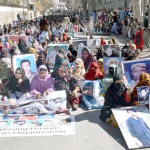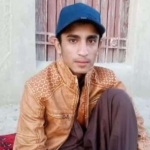Human Rights Council of Balochistan (HRCB) is appalled by the recovery of numerous dead bodies found abandoned on the rooftop of Nishtar Hospital Multan and demands a thorough investigation into the matter.
According to details, Chaudhry Zaman Gujjar, adviser to the chief minister of Punjab found the decomposed bodies during his tour to the hospital.
The government of Punjab notified the hospital to carry out an investigation and forward a report in three days. However, the head of the anatomy department of the hospital said that the bodies were brought by police for postmortem and later handed them over to the hospital for students’ research. The question is why wasn’t an attempt made to establish the identity of corpses then. All civilized societies ensure justice even for the dead.
The horrifying videos and pictures of dead bodies piled up on the rooftop of the Nishtar Hospital have caused an outcry among the public, particularly among the families of victims of enforced disappearances. Thousands of people were forcibly disappeared by the military from Balochistan and other provinces of Pakistan and their whereabouts are unknown. Some of the victims were found in mass graves while others were killed extrajudicially and their mutilated dead bodies dumped on the roadsides. The burial of the dead bodies at Nishtar Hospital without establishing their identities would retraumatize the families, given the recent rise of the killing of victims in fake encounters.
The investigation into the dead bodies is more focused on how the bodies end up on the hospital rooftop and are abandoned in inhuman conditions; though the emphasis should be on the identity of the corpses. However, no measures have been initiated to establish the identities of the corpses. It is absolutely essential to establish the identity of these deceased and not let this abhorrence be swept under the rug like the ‘Tootak Mass Graves’ incident of 2014.
The Human Rights Council of Balochistan (HRCB) calls upon the Federal government and the government of Punjab to carry out a thorough investigation into the cause of death of the bodies and take measures to establish the identities of the bodies through DNA collection and matching.


